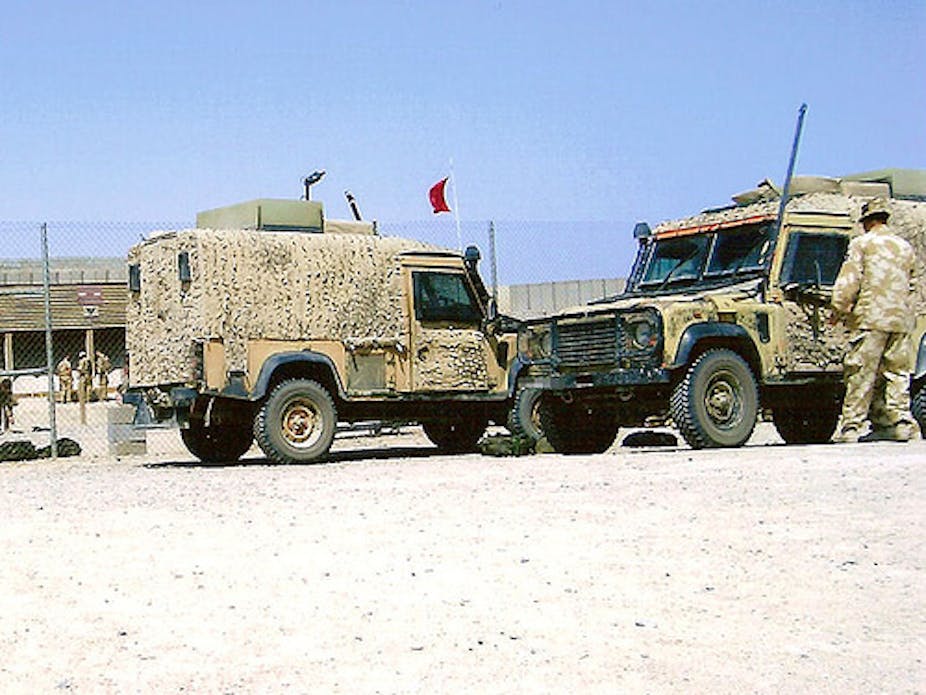The recent Supreme Court decision to allow families of British personnel killed in Iraq to sue the government for negligence set up a barrage of cries about the judgment making it impossible for our armed forces to fulfill their missions overseas. But behind the press stories lies an intricate and important question of law: does the state have obligations under human rights law towards its soldiers when they are outside its territory and outside a military base?
The judgment in Smith et al v Ministry of Defence, arose from the death of British soldiers in Afghanistan while driving a Snatch Land Rover vehicle which had not been fitted with protection against improvised explosive devices (IEDs).
While the judgment covers a range of issues, from the relation between negligence and combat immunity, to the extent of the state’s obligations under article 2 of the European Convention of Human Rights(the right to life), it is important to look at whether a state has any human rights law obligations outside its territory, namely the issue of “jurisdiction”.
Human rights on the battlefield…
While the extent of legal protection and the ability of the courts to “second-guess” procurement and operational planning decisions, led to a strongly worded dissent from Lord Mance (supported by Lord Wilson and partially by Lord Carnwath), the finding of the Court that the human rights jurisdiction of the UK extends to the battlefield, was unanimous.
This, in itself, is very important and any debate about the “judicialisation” of war will now have to use this apparent consensus as a starting point.
The 1950 European Convention of Human Rights, which has been incorporated in the UK legal system through the 1998 Human Rights Act, imposes on the state the obligation to respect a number of individual rights, central among which is the right to life (article 2). However, the Convention is not expected to protect any individual’s rights, wherever this person may be. Only those individuals “within the state’s jurisdiction” are protected (article 1).
The question which arises is what does “within their jurisdiction” mean? The position taken over a long period of time, and exemplified in the 2001 Bankovic v Belgiumjudgment of the European Court of Human Rights (ECtHR), was that jurisdiction was primarily territorial. There the Court declined to find that NATO member states had the obligation to respect “the right to life”, among other rights, under the Convention in their bombing campaign in the former Yugoslavia. Only in exceptional circumstances would a state establish extra-territorial jurisdiction.
Such exceptions would, for example, require the state to be in such effective control over foreign territory, in order to be in a position to respect and protect every right in the Convention. As the ECtHR put it, the rights included in the Convention could not “be divided and tailored in accordance with the particular circumstances of the extra-territorial act in question”.
The Bankovic decision has been the subject of much debate and criticism, and has been gradually qualified since. The latest such case in a long line of relevant case law is the 2011 ECtHR decision in Al-Skeini. Al-Skeini concerned the deaths of six Iraqis at the hands of members of the UK armed forces. The House of Lords in 2007 acknowledged that it could not move further than the Bankovic precedent allowed and found jurisdiction only for Baha Mousa, who was in a detention unit, but not for the other five civilians who had been killed in southern Iraq. The applicants turned to Strasbourg and in 2011 the ECtHR used the opportunity of Al-Skeini to shed the limited Bankovic precedent.
Significantly broadening the scope of a state’s jurisdiction, the ECtHR held that personal control over individuals by agents of the state qualifies as an exception to territoriality. It said: “It is clear that, whenever the state through its agents exercises control and authority over an individual, and thus jurisdiction, the state is under an obligation under article 1 to secure to that individual the rights and freedoms under section 1 of the Convention that are relevant to the situation of that individual.
…not just on army bases
In this sense, therefore, the Convention rights can be "divided and tailored”. The state no longer has to control effectively the territory and be in a position to protect every right but the inability to promote the right to marry (article 12) does not excuse a violation of the right to life.
It is only a small step for the Supreme Court, reviewing this judicial history, last week, to find that the UK has personal jurisdiction over its soldiers and therefore the obligation to protect their individual rights, extra-territorially and even outside military bases where full control is established.
If, as in Al-Skeini, the state has jurisdiction over individuals through its agents, it is only logical that it has jurisdiction over its agents. It is therefore unsurprising that the Court was unanimous in this finding.
There have been concerns, however, that the decision will open the floodgates to future litigation. The courts will therefore face a balancing act between protecting soldiers from negligence by the state and enabling the state to make strategic decisions about procurement and operational planning. “Judicialisation”, however, is already established with “jurisdiction” - in other words, the need for the state to show the legality of actions comes with the state’s jurisdiction.
Armed conflict has been, especially in the last two centuries, an activity regulated by law. This now includes the legal obligations of states to protect the rights of their soldiers in the battlefield.

